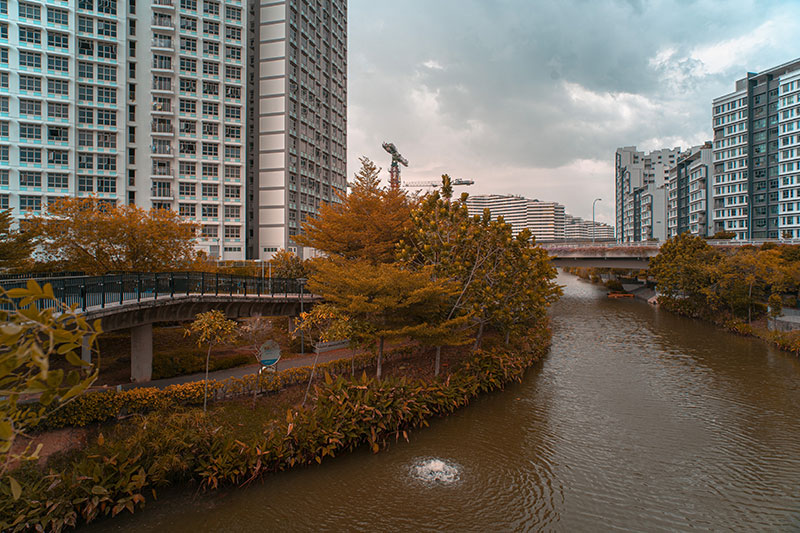Investing in your first Singaporean property is very similar to getting married. It’s a huge commitment and requires a ton of money. Also, you must be prepared to ride out the ups and downs of the process. And if this isn’t enough, now you want to talk about doing it for the second time in the form of investment. This doesn’t make it any easier! Here are important things you must consider before even thinking about investing in property in Singapore.
Pay Off Your Current Home Loan First
It’s important you haven’t got your head in the clouds when it comes to Singapore property investment. If you’ve set your sights on buying a second home, you cannot do so unless you’ve paid off your existing mortgage. Aside from the issues like the cost of vacancies and sky-high taxes, it’s good to look at something basic instead: your loan-to-value (LTV) ratio. This ratio outlines how much you’re able to borrow from the bank to purchase your property.
An LTV ratio of 70% means the bank will loan you up to 70% of the property price or valuation. While the normal maximum is 75%, this can change if you’ve got an outstanding home loan. If you’ve got one outstanding mortgage, the maximum LTV can drop to as low as 45%. Understandably, unless you’ve got a huge wad of cash to put forward ranging in the hundreds of thousands, it’s always wise to get your current mortgage out the way first.
Create a Savings Fund
For landlords, you cannot count on rental income to cover every cost. For instance, say you purchase an investment property that generates a S$4,000 rental income each month, and the loan repayments on the property are S$3,200 a month, the good news is you’re S$800 a month in the green. Unfortunately, should the rental market face a slump and your rental income slides to S$2,500 a month, you will come unstuck. This is where a savings fund will help enormously.
Having sufficient savings behind you will mean you can carry on servicing the loan, even if the rental market encounters a rocky patch. Another fund you will need to build up is the mortgage repayments fund. This consists of six months of mortgage repayments that are held in reserve in the event of an emergency. Before you can dream about investing in a property in Singapore, it’s time to get a savings fund in order! Once you’ve got the funds in place, you can take a look at properties to buy and invest in. You can use Property Guru to browse HDB estates. They are experts when it comes to buying and renting properties in Singapore.
You Must Do Your Research
If you aspire to be a property investor, you need to do a ton of homework. You’ll need to figure out your rental yields, as well as look at the historical price movements in the area. Also, you must have knowledge of the Urban Redevelopment Authority’s (URA) master plan. In many scenarios, by the time you hear about a property hotspot, it is far too late. The prices of these properties have to rise first before the media can talk about it. Rather than spending every waking hour poring through the property section of the Straits Times, it’s time to put your focus on other areas.
Spend time looking up and down Singapore for that hidden gem before anyone else gets their hands on it. Property investing may seem like a walk in the park for some, but for most, it’s going to take a lot of hard work, research, and determination to find a lucrative property.
Understand How Property is Bought and Sold
In many cases, property investors will need to look at other methods to obtain the financing they require. You may be better off setting up a business and then handling your property assets through it. Asset-backed loans may be required in which you use a stock portfolio or other homes you own as collateral.
It’s a good idea to expand your knowledge of how a property auction works. This will help you secure a better deal at a mortgagee sale. In a nutshell, make sure you know exactly what you’re getting yourself into before getting into it!
Prepare to Handle Taxes and Fees
If there is one thing that’s of immediate concern, it’s the ABSD (Additional Buyers Stamp Duty). Bear in mind that Singapore residents pay an extra 1.7% on the property price when purchasing a second property. For a third property, residents can pay an eyewatering 25% of the property price.
The most important thing is working out the tax rate on your property. You’ll find non-owner-occupied residential homes have a higher tax rate. You also need to be in the know of tax deductions you can claim like maintenance fees for utility bills, tenanted units, and the interest rate on your property loan.
Jumping into the property investment world of Singapore should not be taken lightly. As you can see, there is a wide range of factors to know and consider before going any further.
